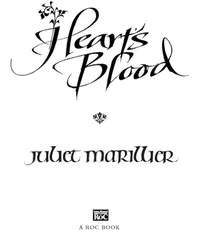Cybele's Secret - Juliet Marillier - Cybele's Secret
Здесь есть возможность читать онлайн «Cybele's Secret - Juliet Marillier - Cybele's Secret» весь текст электронной книги совершенно бесплатно (целиком полную версию без сокращений). В некоторых случаях можно слушать аудио, скачать через торрент в формате fb2 и присутствует краткое содержание. Жанр: Старинная литература, на русском языке. Описание произведения, (предисловие) а так же отзывы посетителей доступны на портале библиотеки ЛибКат.
- Название:Juliet Marillier - Cybele's Secret
- Автор:
- Жанр:
- Год:неизвестен
- ISBN:нет данных
- Рейтинг книги:5 / 5. Голосов: 1
-
Избранное:Добавить в избранное
- Отзывы:
-
Ваша оценка:
- 100
- 1
- 2
- 3
- 4
- 5
Juliet Marillier - Cybele's Secret: краткое содержание, описание и аннотация
Предлагаем к чтению аннотацию, описание, краткое содержание или предисловие (зависит от того, что написал сам автор книги «Juliet Marillier - Cybele's Secret»). Если вы не нашли необходимую информацию о книге — напишите в комментариях, мы постараемся отыскать её.
Juliet Marillier - Cybele's Secret — читать онлайн бесплатно полную книгу (весь текст) целиком
Ниже представлен текст книги, разбитый по страницам. Система сохранения места последней прочитанной страницы, позволяет с удобством читать онлайн бесплатно книгу «Juliet Marillier - Cybele's Secret», без необходимости каждый раз заново искать на чём Вы остановились. Поставьте закладку, и сможете в любой момент перейти на страницу, на которой закончили чтение.
Интервал:
Закладка:
My little sister, Stela, was only eleven. It was too early to say what she would turn her hand to as a grown-up woman, but she was certainly clever. She could be a scholar like me, or a merchant like Jena, or a wife, mother, and influential family adviser like Iulia. Or she might be the one out of us all who managed to find a way back to the Other Kingdom. Unlike me, Stela had never given up hope that she would one day do just that.
As for my eldest sister, Tatiana, whom we called Tati, we did not expect to see her again. She had fallen in love with a strange young man in a black coat and had gone where we could not reach her. Six years; it was a long time. Jena’s son, Nicolae, was three now, Iulia’s son a toddler and her daughter a bonny infant. Tati had missed so much. I wondered if they had children of their own, she and Sorrow, and what they were like.
Father and I sat out on the gallery drinking tea and preparing for the meeting with the Venetians. There was a constant stream of folk across the courtyard below us, like a smaller version of Istanbul’s colorful tide of humanity. Most of the occupants of this han were Genoese, but their customers came from everywhere. A party of Turkish officials in elaborately embroidered robes came in to speak with Giacomo and his partner. They were escorted by armed men wearing tall hats. Janissaries, Father told me—the Sultan’s military force, formidable in battle and faultlessly loyal. The han guard did not give his usual ringing challenge but let them pass without a word. They did not stay long.
The Sultan would not buy here, of course. Those who purchased goods on his behalf dealt almost exclusively with business enterprises that were within his own personal control. If there was a need to go beyond those, perhaps for a particularly specialized dyestuff or a rare manuscript, an emissary would be sent out to summon the merchant to the palace. Even the most respected traders would be admitted only to the outer court of that establishment. The Sultan and his household were surrounded by layer on layer of security and protected by rigid codes of protocol. That did not always keep them safe. In a hierarchy where any male of direct lineage could ascend the throne, covert killings were a fact of life. I had heard some terrible stories.
“Concentrate, Paula,” said Father. “I need you to be observant during this meeting. Watch their eyes and their expressions. This fellow Alonso di Parma is known to be manipulative. We need to be clear on the taxes; who pays the fee on entry of the goods to the harbor here and whether there’s an additional impost on transfer to our own ship for the journey north. If they pay that, we could offer to set it against the tax on the furs.”
“Yes, Father.” I had been distracted by the appearance of a female visitor to the han. A shapely, stylish woman of about thirty was going up the far steps now, probably to visit Maria or her friend Claudia, who was married to another Genoese trader. Her hair was covered by a very fine veil in dark green stuff with a row of tiny gold medallions sewn around the edge, framing her face. Under it she wore a long overdress in the Greek style, green and gold, with a flowing skirt beneath. The ensemble was complemented by gold slippers.
I glanced down at my own garb, finding it suddenly a little lacking. I had selected my outfit for decorum, not for style. I had on a dove-gray gown with some unobtrusive braiding at neck and wrists, and a blue headscarf. In short, I had dressed not as a single woman of seventeen but as my father’s assistant. For a moment or two, I allowed myself to want gold slippers and a gown that would make me beautiful.
The elegant lady had vanished into Maria’s quarters. Her guard, a big man in a caftan and turban, was standing out on the gallery waiting. I caught his eye without intending to, and he gave a slight nod. There was something odd about him—a fleshiness of the features, a certain manner. I could not quite place it.
“A eunuch,” said Father, noticing my curiosity. “You’ll see them from time to time in Istanbul, generally escorting dignitaries from the palace. Among the Sultan’s most trusted slaves are both black and white eunuchs. The former guard the harem, the latter see to the business of the household in general, including the education of the Sultan’s sons and those of his nobles. They are employees of high status. But slaves nonetheless.”
“Oh,” I said. “But he came with a lady who looked like a buyer. Greek, maybe.”
“I didn’t notice her. It would be unusual. Infidels—that is, foreigners, non-Muslims—rarely have the opportunity to employ such a person in their households. Don’t stare, Paula.”
Embarrassed, I brought my attention back to the matter at hand. We went through our figures once again. The Venetians were late. We discussed how we would handle things if they did not come. When we heard the guard at the han gate challenge someone, Father and I both rose to our feet, sure our visitors had arrived at last. But it was Stoyan who came into the courtyard; he strode to the steps and ascended them with his usual athletic speed. He hurried along the gallery to us. I observed that he was slightly out of breath; that was a first.
“Is something wrong?” Father asked him.
“No, Master Teodor. I have been to this blue house. The merchant invites you to come now, immediately. I made my way back as quickly as I could, knowing you viewed the matter as urgent.”
Father was not a man given to cursing, but he muttered something under his breath that sounded suspiciously like an oath. “I can’t go now,” he said. “I have traders coming to see me at any moment. If I put them off, I may lose an important deal.”
Stoyan was getting his breathing under better control. I suspected he had run all the way. “I am sorry, Master Teodor. At first, the steward of that household did not wish to hear my message. I thought it prudent to mention Salem bin Afazi. I was then admitted. I told the merchant you were Salem’s friend, all the way from Transylvania.”
“I wonder if he would see me in the afternoon.”
“He did say”—Stoyan’s tone was apologetic—“that he must keep your appointment brief, as others were coming to visit him later.”
“This is infuriating,” muttered Father. “To have the opportunity laid before me on a plate and not be able to take it…I can’t be in two places at once.”
“I could go,” I said.
“I don’t think that’s wise.” Stoyan’s response was instant and emphatic.
I stared at him, outraged. “It’s not up to you to decide!” It was all very well for him; he wasn’t shut up in the han all day. “I’m perfectly capable.”
“I’m in complete agreement with Stoyan,” Father said. “This Armenian will not be prepared to receive a young woman on such sensitive business. Besides, it’s too risky.” He sighed. “It does seem we must let this opportunity pass.”
“If I may suggest?” Stoyan spoke up, surprising me. “Kyria Paula could deal with these traders, could she not? I can request that the han guard remains within sight. Provided the negotiations take place out on the gallery, I believe it will be quite safe for her. You will need me to show you the way to the blue house, Master Teodor. It is not so easy to find.”
Father opened his mouth to say no—I could see the doubt in his eyes—and shut it again as I lifted my chin and fixed him with my most capable look.
“I can do it,” I said. “I know everything about the deal, including how to stop Alonso di Parma from trying to double-cross me. I’ll explain that we can reach provisional terms subject to your signature. Go on, Father. You must see this Armenian. It may be our big chance.”
“I don’t know—”
Читать дальшеИнтервал:
Закладка:
Похожие книги на «Juliet Marillier - Cybele's Secret»
Представляем Вашему вниманию похожие книги на «Juliet Marillier - Cybele's Secret» списком для выбора. Мы отобрали схожую по названию и смыслу литературу в надежде предоставить читателям больше вариантов отыскать новые, интересные, ещё непрочитанные произведения.
Обсуждение, отзывы о книге «Juliet Marillier - Cybele's Secret» и просто собственные мнения читателей. Оставьте ваши комментарии, напишите, что Вы думаете о произведении, его смысле или главных героях. Укажите что конкретно понравилось, а что нет, и почему Вы так считаете.











